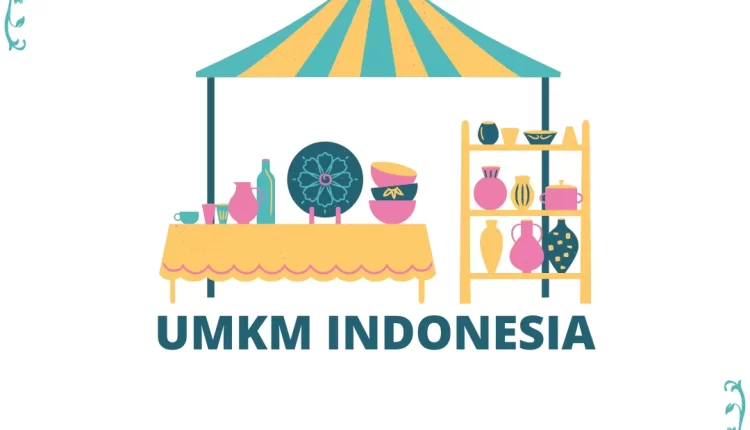MSME Debt Amnesty Policy Gives Positive Impact to Indonesian Economy
By: Rivka Mayangsari*)
In an effort to strengthen the national economy, the government has designed a debt amnesty policy for millions of farmers, fishermen, and micro, small and medium enterprises (MSMEs). This policy is considered a strategic step to increase competitiveness and economic stability amidst increasingly complex global challenges. Based on the views of Senior Economist and Associate Faculty of the Indonesian Banking Development Institute (LPPI), Ryan Kiryanto, the debt amnesty or write-off has the potential to provide a significant double effect or multiplier effect on domestic economic activities.
According to Ryan Kiryanto, this amnesty policy allows MSMEs, farmers, and fishermen to regain access to capital and bank credit that has been hampered by piles of debt. With debt amnesty, they can rebuild their businesses, increase productivity, and even expand their business scale.
Ryan’s statement was also supported by the Chairman of the Advisory Board of the Indonesian Chamber of Commerce and Industry (Kadin), Hashim Djojohadikusumo. He said that the presidential regulation (Perpres) regarding debt relief for millions of farmers and fishermen would soon be signed by President Prabowo. This policy is expected to bring positive impacts evenly to various economic sectors, especially the agriculture and fisheries sectors which have been the backbone of the people’s economy.
On the same occasion, Hashim also highlighted the problem of banking access which has been an obstacle for MSMEs, farmers, and fishermen. Based on the data, there are around 6 million micro, small, and medium business actors, including farmers and fishermen, who are trapped in debt. This makes it difficult for them to get credit facilities from banks to develop their businesses.
This debt amnesty policy is expected to pave the way for business actors to return to the banking sector. With the loss of debt burden, they can apply for new credit, both for business development and for increasing production capacity.
Economist Ryan Kiryanto further explained that the multiplier effect of this policy not only impacts the direct recipients of debt amnesty, but also the national economy as a whole. When millions of MSMEs, farmers, and fishermen are free from the burden of debt, purchasing power will increase, and household consumption will also increase.
The multiplier effect will also be seen in the creation of new jobs. When MSMEs and the agriculture and fisheries sectors are back in full swing, many people will be absorbed as workers. Thus, the unemployment rate can be suppressed and public welfare will increase. On the other hand, this increased economic productivity will increase state revenue through taxes, which in turn can be used for infrastructure development and other public facilities.
The Indonesian Chamber of Commerce and Industry (Kadin) fully supports this policy. Hashim Djojohadikusumo assessed that debt forgiveness for MSMEs, farmers, and fishermen is a manifestation of the government’s real concern for the most vulnerable economic sectors. According to him, this Presidential Regulation is based on a reality that cannot be ignored, where millions of small business actors in the country are trapped in debt without a clear way out. Through this forgiveness, it is hoped that these business actors can rise again and contribute positively to national economic growth.
Furthermore, Hashim emphasized that the debt amnesty policy is the first step to create a more inclusive business ecosystem. With this policy, MSMEs are not only given the opportunity to rise, but are also included in the big flow of the national economy. The support from Kadin is expected to be an encouragement for the government to immediately realize the policy and ensure that its implementation is right on target.
By providing relief for the lower middle class, the government shows its commitment to realizing equitable prosperity. This policy also provides opportunities for MSMEs to compete in a wider market and contribute to exports, which will ultimately strengthen Indonesia’s position in the global economy.
Along with the implementation of this policy, it is also expected that there will be support from various parties, including banks, local governments, and other financial institutions. This collaboration is important so that the debt amnesty policy can run effectively and achieve the desired target.
The debt amnesty policy for MSMEs, farmers, and fishermen is a progressive step that brings new hope to the Indonesian economy. With the multiplier effect it produces, this policy not only provides a solution for those who are in debt, but also strengthens the foundation of the national economy. As a country that relies on the agriculture, fisheries, and MSME sectors, debt amnesty is a breath of fresh air that will move the wheels of the Indonesian economy back in a better direction.
If the presidential regulation on debt forgiveness is signed by President Prabowo, as expected, then millions of Indonesians who have been marginalized from banking access will have the opportunity to rise again. Thus, the Indonesian economy will be more resilient and inclusive, making the country better prepared to face global challenges in the future.
*)Economic Observer
